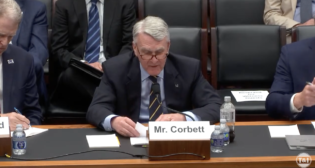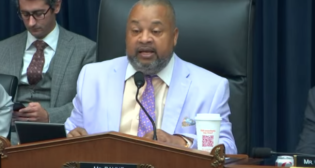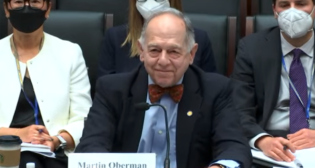The House Committee on Transportation & Infrastructure hearing, “Board Member Views on Surface Transportation Board Reauthorization,” was for the most part a rehash of the topics that the STB has been covering in its own hearings on freight rail service problems, reciprocal switching and other areas the industry has had to address in recent weeks. T&I Chairman Peter DeFazio (D-Ore.), who is not seeking re-election in this year’s mid-terms, and Railroad, Pipelines and Hazardous Materials Subcommittee Chair Donald Payne Jr. (D-N.J.) chaired the hearing, which in a press release was couched as “The Surface Transportation Board’s Role in Resolving Freight Rail Conflicts.”




